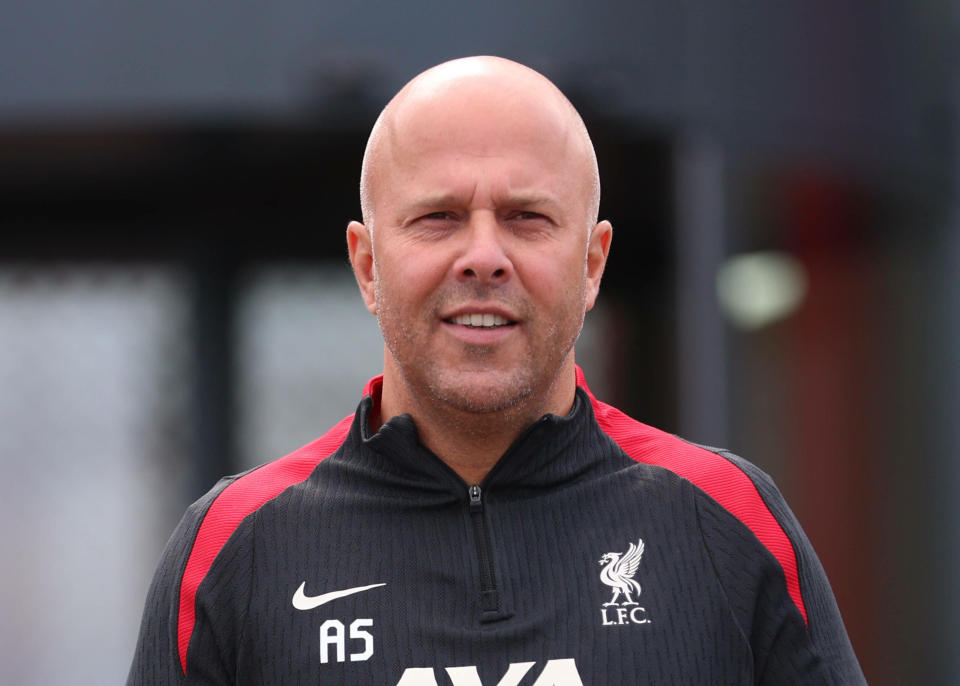Journalist: Arne Slot Faces £20m Liverpool Transfer Dilemma Over the Future of 21-year-old Star

Tyler Morton: Liverpool’s Midfield Puzzle and Potential Transfer Strategy
Evaluating Morton’s Place at Liverpool
As the summer transfer window heats up, Liverpool finds itself at a crossroads regarding young midfielder Tyler Morton. Sam McGuire of Anfield Watch insightfully points out the conundrum Liverpool faces with Morton, who at just 21 years old, embodies both promise and predicament.
Morton, a player who excelled under Arne Slot at Feyenoord, represents an intriguing prospect. Yet, the Liverpool midfield, dense with talent including names like Alexis Mac Allister and Curtis Jones, presents a formidable barrier to regular first-team football for Morton. McGuire states, “If Slot sticks with the staggered double pivot approach he used at Feyenoord… Playing time would be limited for Morton unless he had an incredible pre-season or there was an injury crisis.” This crowded scenario might sideline Morton’s potential contribution.
Could Selling Morton Be a Masterclass in Strategy?
Liverpool’s potential decision to bank around £20 million from Morton’s transfer might seem like prudent business. As McGuire puts it, “Thinking about it, £20million for a player with just two Premier League appearances feels like an old-school Michael Edwards masterclass.” The idea is straightforward: sell when a player’s stock is high, a strategy Liverpool has occasionally faltered with in the past.

However, Morton’s situation poses a classic Liverpool dilemma—balancing the nurturing of homegrown talent against financial and strategic imperatives. McGuire adds, “You’re supposed to sell players when their stock is high. It is something Liverpool have failed to do properly over recent seasons.” This statement underpins the rationale that might drive Liverpool’s decision-making process regarding Morton.
Reassessing Morton’s Market Value
Delving deeper, there’s the question of whether Liverpool might undervalue Morton by letting him go too soon. McGuire highlights interest from clubs like RB Leipzig and Sevilla, known for their keen eye in picking underrated talents. “RB Leipzig have a proven track record of identifying and developing young talent… If they want him, there must be a reason for it,” McGuire observes, suggesting that these clubs see something in Morton that Liverpool might be overlooking in their strategic calculations.
It’s essential to consider whether Liverpool is indeed undervaluing Morton, especially given the intense competition and strategic alignments within the team. This scenario underlines a broader strategic question: Are financial returns now more crucial than the potential long-term benefits of player development?

Jury Still Out on Morton’s Potential
Morton’s potential is undeniable. With considerable experience from loan spells and a solid track record at youth levels, he stands out as a mature and technically adept midfielder. McGuire notes, “He’s mature for his age and these loans have helped him develop as a player… He’s progressive yet safe.” This indicates that Morton is not just another player in the roster but one who brings a specific set of skills that could be invaluable under the right circumstances.
In conclusion, Tyler Morton represents a nuanced challenge for Liverpool’s transfer strategy. Balancing immediate financial incentives with long-term developmental goals is tricky. While it might make sense to capitalise on his current market value, the strategic loss of potentially undervaluing such a talent could resonate in the years to come. As Liverpool ponders its next steps, the broader implications of Morton’s potential sale will undoubtedly influence their strategic direction in nurturing and capitalising on homegrown talent.

 Yahoo Sports
Yahoo Sports 
